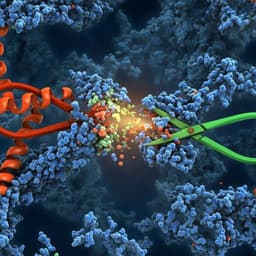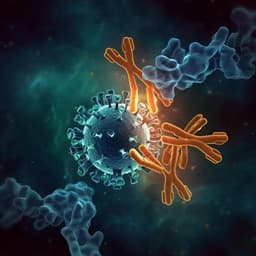
Biology
CRISPR-Cas13d effectively targets SARS-CoV-2 variants, including Delta and Omicron, and inhibits viral infection
Z. Liu, X. Gao, et al.
This groundbreaking study reveals a novel CRISPR-Cas13d-based strategy with over 99% efficiency in targeting SARS-CoV-2 variants, including Delta and Omicron. Conducted by a team of experts including Zongzhi Liu, Xiang Gao, and others, this research highlights the rapid antiviral potential of this approach, paving the way for future defenses against viral threats.
Related Publications
Explore these studies to deepen your understanding of the subject.







